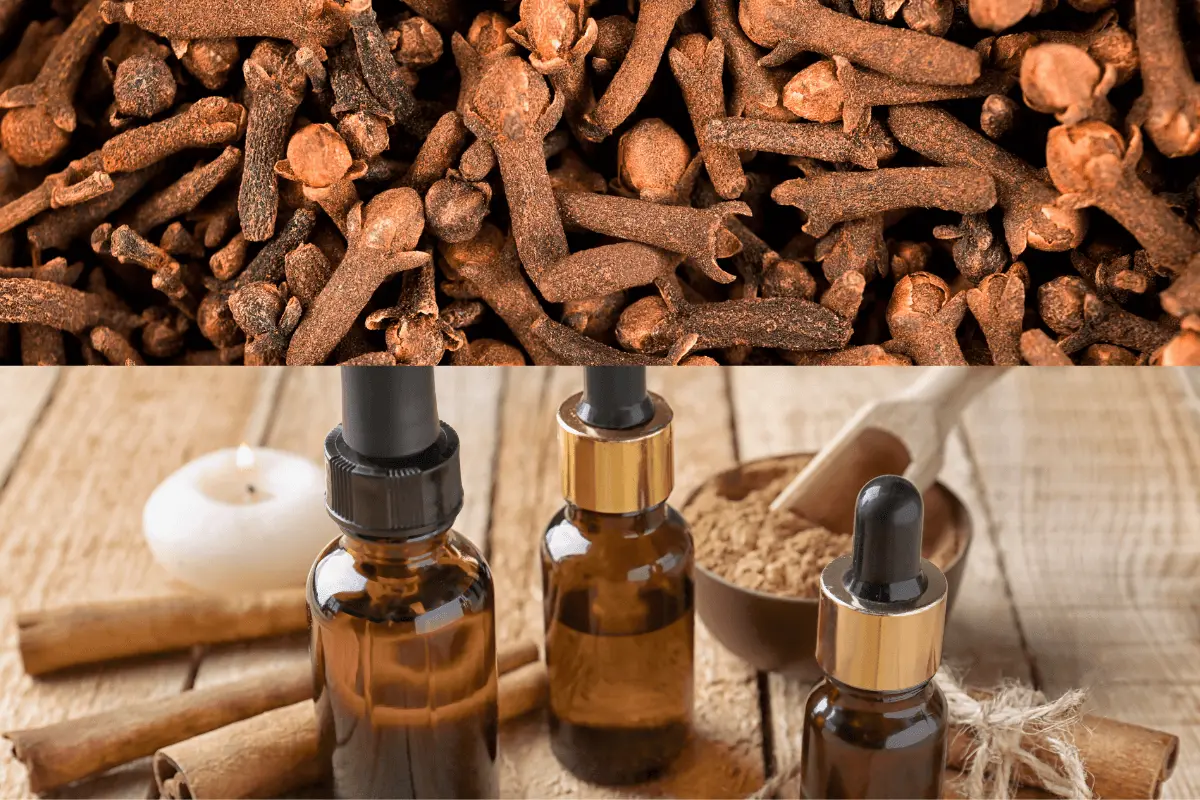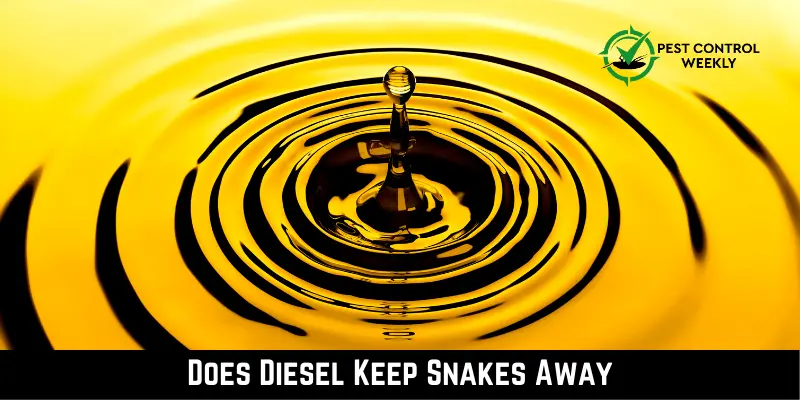If you’ve ever lived where snakes are popular, you may have heard the old story that diesel is a good way to keep snakes away. Is it true does diesel keep snakes away? Or is it all just a long-standing myth?
Yes, a prevalent fuel, diesel has long been thought to repel snakes. Many people, especially in rural areas, believe spraying diesel around their houses and yards would deter snakes.
Keep on reading! This article will show some surprising facts and important information about the link between diesel and snakes.
Myth or Fact: Diesel as a Snake Repellant
Despite popular belief, scientific studies can’t confirm diesel’s purported efficacy as a snake deterrent. Diesel’s strong odor may make it appear a good deterrent, but surprisingly little data support this myth.
There are also serious concerns regarding the long-term viability of using diesel for pest control due to environmental factors. Diesel’s reputation as an excellent snake repellent is on questionable footing, closer to the fabric of mythology than the precision of scientific inquiry. Possible alternatives must be considered, and they must be ecologically beneficial and supported by strong scientific evidence.
Exploring the Diesel as Snake Repellant Theory
Diesel-repelling snakes are an interesting myth and amateur entomology study. The general idea that the pungent odor of diesel is offensive to snakes is a major factor in this theory.
However, no scientific studies directly support this hypothesis, so it’s vital to remember that. Instead, investigations of snake behavior have demonstrated that this species responds predominantly to tactile and thermal cues rather than odors. Therefore, relying simply on the pungent smell of diesel as a snake deterrent may be futile.
The Composition of Diesel
According to Catalysis Reviews, diesel is a complex combination of hydrocarbons that includes both linear and branched hydrocarbons and aromatic compounds. Diesel’s distinctive chemical makeup gives it a strong odor, incorrectly thought to be an efficient snake repellent.
However, like any other drug, diesel’s effects on snake behavior depend on the snake’s sensory perceptions. Diesel’s pungent odor could have a limited effect on snakes’ behavior, given that they rely mostly on heat perception and vibrations to understand their surroundings. Therefore, the idea that diesel may be used to repel snakes is more of a myth than a truth confirmed by science.
How Do Snakes React to Diesel?
Diesel’s exact effect on snakes is still being determined. The widespread assumption originates from the speculation that the strong diesel odor might discourage snakes. However, snakes rely more on thermal and vibrational signals than smell cues in their sensory framework. Snakes use heat-sensing organs to locate prey and traverse their environments, notably in pit vipers, pythons, and boas.
In addition, their jaws allow them to detect vibrations from predators or prey. Given the sensory properties of snakes, the hypothesis that the strong odor of diesel functions as a powerful deterrent appears questionable at best.
Scientific Evidence: Diesel and Snakes
There is no reliable scientific data connecting diesel’s effect on snake behavior. Several urban legends and home treatments use diesel as a snake repellent, but the scientific evidence for this is hard to come by.
Studies aimed at discouraging snakes often examine the effectiveness of chemical repellents, predator signals, and structural changes to their environments. Diesel’s efficacy in this research has not been formally investigated or verified. Therefore, there is currently insufficient data to support the idea that diesel can repel snakes.
Studies and Research
Diesel may repel snakes, according to tradition and anecdotes; however, scientific research has not confirmed this. Researchers in herpetology have shown that snakes are not too sensitive to smells. Most studies on snakes have focused on how vibration and temperature signals affect them.
Some research has also explored the use of targeted chemical repellants, although diesel has not been included in these efforts. Thus, diesel’s snake-repelling claims are unproven due to a lack of robust scientific evidence.
Expert Opinions
Herpetologists generally agree that diesel repels snakes. The general majority holds that snakes rely on thermal and vibrational signals for navigation, making the efficacy of smell deterrents like diesel unclear. Diesel is a pollutant that has raised serious concerns among environmentalists and conservationists due to its potential influence on sensitive ecosystems.
Ecosystems might be thrown off balance, which would harm plants and animals. Therefore, professionals advocate more environmentally friendly and scientifically verified measures, such as habitat alteration and professional removal, to manage snake populations.
How To Use Diesel To Repel Snakes?
Following are the steps to use diesel to repel snakes:
- To begin, locate the region you wish to be snake-free. It might be a section of your garden, a residential neighborhood, or a farm.
- To prepare the necessary materials, you will need many fabric strips or rags and a container of diesel.
- Step one of the deployment process is to soak the rags in diesel and strategically place them in the target area. This plan is meant to create an olfactory barrier, which is said to be offensive to snakes.
- Due to the high evaporation rate of diesel, the soaked rags need to be replaced frequently if they are to continue having their intended deterring effect.
Pros and Cons of Using Diesel as a Snake Repellent
Environmental Impact
Diesel’s negative effects on the environment as a snake repellent are significant. Diesel pollutes soil and water, destroying aquatic and plant life. Hydrocarbons in it can deplete soil nutrients, stunt plant development, and endanger animals that rely on these ecosystems for survival.
As it builds up in bodies of water, it threatens aquatic life and can upset the delicate ecological balance. When deciding whether or not to use diesel as a snake deterrent, it is necessary to consider the significant impact on the environment.
Effectiveness and Limitations
Diesel may repel snakes, although there is little scientific evidence. Because snakes primarily sense their surroundings through heat and vibration, the smell of diesel may not be important to them. In addition, there are significant constraints associated with diesel consumption. It harms the environment and offers a serious risk of fire.
Diesel evaporates fast, so repeat applications will be required if you insist on using it. This constant reapplication poses a greater threat to the environment and makes the approach extremely inconvenient. As a result of these serious constraints, we urgently want additional evidence-based, eco-friendly options.
Alternatives to Diesel for Snake Repellents
Natural Alternatives

- Natural Predators: Birds and mongooses can limit snake numbers. To avoid ecological damage, do this carefully.
- Habitat modification: One of the best snake repellents is habitat modification. Snakes hide among rocks, long grass, and rubbish, so remove them.
- Commercial Snake Repellents: Many commercial snake repellents employ clove oil and sulfur. Choose eco-friendly, scientifically verified ones.
- Plant-based Repellents: According to Res J Pharmacogn, snake repellents include marigold, lemongrass, and wormwood. Planting them around your yard may deter snakes.
- Essential Oils: Clove and cinnamon oils may repel snakes. These may be sprayed throughout the property, but their efficacy varies and needs regular reapplication.
- Vinegar: Spraying a vinegar-water mix about the property may discourage snakes, although its efficacy is debatable.
- Professional Pest Control: A professional pest control service may be preferable for chronic snake problems. These experts can safely handle and remove snakes.

Commercially Available Repellents
- Snake-A-Way: This substance disrupts the snake’s sensory perception, making it crawl away for fresh air. It contains coal tar-derived naphthalene.
- Snake Defense: All-natural, non-toxic, and eco-friendly; Snake Defence uses essential oils snakes dislike. For wide areas, it’s a ready-to-spray repellant.
- Exterminators Choice Snake Repellent: This natural snake repellent includes cinnamon and clove essential oils. It’s easy to use indoors and outdoors.
- Ortho Snake B Gon: A granular snake repellent that prevents entrance, nesting, and foraging. Its non-toxic solution is suitable for people, pets, and plants.
- Dr. T’s Snake-A-Way Hose-End Spray: Sulphur and naphthalene generate a snake-repelling sensory barrier in this product. Large-area application is straightforward with the hose-end sprayer.
- Nature’s Mace Snake Repellent: Contains putrescent egg solids to repel snakes. The weather-resistant formula protects pets and children.
Conclusion
In conclusion, using diesel as a snake repellent is still a controversial practice supported more by urban legend than science. Because snakes respond more to thermal and vibrational cues than olfactory ones, their potential usefulness against the reptiles is greatly diminished.
Furthermore, applying diesel as a deterrent has significant environmental effects, including damage to soil fertility, water bodies, and the larger ecosystem. Many other options exist, such as modifying existing habitats or using gentler commercial repellents on the ecosystem. In our pursuit of peaceful coexistence with our scaly neighbors, we must prioritize evidence-based, environmentally conscious, and, above all else, compassionate approaches.
FAQs
References
Rohini Khobragade, Sunit Kumar Singh, Pravesh Chandra Shukla, Tarun Gupta, Ahmed S. Al-Fatesh, Avinash Kumar Agarwal & Nitin K. Labhasetwar (2019) Chemical composition of diesel particulate matter and its control, Catalysis Reviews, 61:4, 447-515, DOI: 10.1080/01614940.2019.1617607
